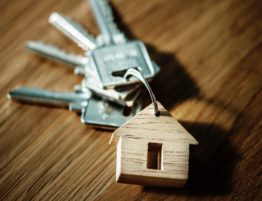
Many people understand that mortgages are connected to the purchase of real estate, but often, the details of who is left with what at the end of the transaction are misunderstood. The lawyers at Ahlstrom Wright often hear clients say, “I need a mortgage to buy a house” and while Ahlstrom Wright understands what their clients are meaning when they say that, it is not technically accurate.
Mortgages are a type of secured financing, where individuals or business’ give a bank (or anyone else willing to lend them money) an interest in the property in exchange for a loan. It is actually the borrower that is granting the mortgage to the bank, not the other way around. This explains why the borrower, or homebuyer, is referred to as the mortgagor, and the bank, or the lender, is referred to as the mortgagee. The bank is giving the homebuyer a loan in exchange for taking a security interest in the property.
The Three Components to a Mortgage
For many homebuyers, the most important parts of the mortgage agreement include their financial obligations. It has been said that a mortgage agreement is made up of three components; the principal, interest and the amortization period.
The principal is the initial amount that the homebuyer is borrowing. It may not be the full purchase price of the property, and typically won’t be. It is simply the amount the lender is willing to lend you in exchange for a security interest in the property. Interest is well understood by many people, and represents the amount the lender will charge you over time as a fee for lending the homebuyer money. The amortization period reflects the length of time the homebuyer has to pay off the loan. A longer amortization period will mean lower monthly payments, but more interest paid over the long run, while a shorter amortization period will result in higher monthly payments, but the homebuyer will pay less interest by the end of the amortization period.
While many homebuyers may be exclusively interested in the terms of their financial obligations, the lawyers at Ahlstrom Wright are there to protect you from other dangers in a mortgage agreement. There are many ways to default on a mortgage (more information on default below) and the lawyers at Ahlstrom Wright will be able to explain to you in simple terms your obligations under your mortgage.
What Will Happen If I Don’t Pay My Mortgage?
After the terms of the mortgage have been agreed to, the lender can register their security interest in the Land Titles Registry. This lets any subsequent purchaser know that the lender has a security interest, and they need to be paid out before the land can be taken free and clear of the lender’s security interest. It also allows the lender to begin foreclosure proceedings.
In the event of a default, the lender can use their security interest that the homebuyer has given them to take action to collect on the loan. The lender will begin foreclosure proceedings, and, if they are successful and the homebuyer is still in default of the mortgage terms, the house can be sold to satisfy the debt owed to the lender.
There are many ways to default on a mortgage, including the most common default of non-payment. When a homebuyer fails to make payments to the lender, the lender can begin foreclosure proceedings after one missed payment, although most lenders will typically contact you before beginning foreclosure proceedings. Other defaults include failure to keep the property adequately insured, failure to make tax payments, failure to upkeep the property, and failure to pay appropriate fees, such as condo fees.
Are you are buying a house?
Do you have questions about real estate?
Contact the lawyers at Ahlstrom Wright
Call us toll-free 1-844-558-8750
or Email us at lawyers@ahlstromwright.ca






